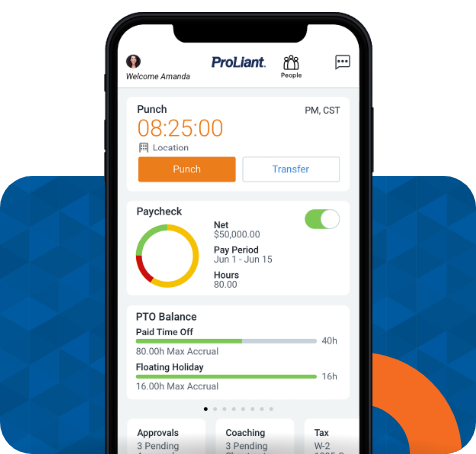Federal Updates
New Taxes
Delaware – Paid Family Leave
ETA: Contribution begin January 1, 2025; Benefits begin January 1, 2026
Between Sept. 1 and Dec. 1, 2024, employers will be expected to either opt in to Delaware Paid Leave or get private-plan approval.
UPDATE: Per the agency, employers are expected to be able to register or get private-plan approval in October. “Delaware LaborFirst was supposed to open September 1 but the developer experienced some issues deploying into production. We do not have an exact date yet.”
Participating in Delaware Paid Leave is mandatory for most businesses with 10 or more employees working in Delaware.
Employers with 10-24 employees are required to provide Parental Leave. Employers with 25+ employees are required to provide the full benefit.
Contribution rate: 0.8%
- Parental: 0.32%
- Medical: 0.4%
- Caregiver/Qualified Exigency: 0.08%
Employers can charge their employee(s) half of the cost of the plan.
More information to come as the contribution date approaches.
Delaware Paid Leave Is Coming - Delaware Department of Labor
Maine – Paid Family Leave
ETA: Contribution begin January 1, 2025; Benefits begin May 1, 2026
Contribution rate: 1% split between the employer and employee(s)
0.5% employer, 0.5% employee
- Employers with less than 15 employees are exempt from the employer portion of the contribution
Maine Paid Leave offers eligible workers:
The individual must have earned at least six times the state average weekly wage in four of the last five completed quarters to qualify for the benefit.
The employee must have worked for at least 120 days to guarantee job protection under the law.
Leave includes:
- Family leave – to care for a new child, or to care for a family member with a serious health condition
- Medical leave – to care for ones own medical needs
- Safe leave – victims of domestic abuse
- Military deployment – emergencies relating to military deployment (qualifying exigency)
More information to come as it becomes available closer to the contribution start date.
State Updates
Connecticut
Paid Sick Law Update
As of January 1, 2025, CT is expanding its paid sick law requirements. For the 2025 updates, employers with 25 or more employees are required to provide paid sick time. The current law applies to employers with 50 or more service workers. The service worker threshold is determined by the company's payroll for the week including October 1.
Eligibility and Accrual: Under the expanded law, employees may use accrued sick time on and after 120 calendar days of employment. Accrued paid sick time still begins upon hire, it accrues at a rate of 1 hour of sick time for every 30 hours worked, up to a maximum of 40 hours per year. Service workers are entitled to carry over up to 40 hours of sick time from the current year to the following year. In lieu of carryover, employers may front-load sick time that meets or exceeds the requirements of the law.
An employer may not require an employee to provide documentation that leave is being taken for a permitted purpose.
A New Provision:
- An employer must allow an employee to retain his/her accrued sick leave if transferred within the company or if another employer succeeds or takes the place of the existing employer.
- An employer may not require an employee to find coverage for his/her shift.
- An employer must retain sick time records for a period of three years, including: (1) the number of hours of paid sick time accrued or provided to the employee; and (2) the number of hours used by the employee during the calendar year.
- CTDOL may inspect the sick time records and assess penalties for failure to keep required records.
An act expanding paid sick days in the state.
Illinois
Update to Pay Stub Requirements
Effective January 1, 2025, pay statement requirements are significantly expanded. A pay statement must be an itemized statement that shows an employee's:
- Hours worked;
- Overtime hours worked;
- Rate(s) of pay;
- Overtime pay;
- Gross wages earned;
- Deductions from the employee's wages;
- Yearly total of wages to date; and
- Yearly total of deductions to date.
Currently, only an itemized list of deductions is required on the pay stub. Employers are required to maintain a copy of the employee(s) check stuf for at least three years following the pay date.
Citation (brightmine.com)
Secure Choice Savings Program Update
Employers are required to participate in the program if they are an employer as defined by the Illinois Secure Choice Savings Program Act. The Act defines an employer as an employer that has:
- Employed at least five employees in the state during every quarter of the previous calendar year;
- Has been in business for at least two years; and
- Has not offered a tax-qualified retirement savings plan to any Illinois employees (e.g., 401(k) plan, 403(b) plan) in the previous two years.
Employers that do not meet this definition are exempt. If a small employer wants to voluntarily participate in the program, they must notify the Board either online or by phone.
UPDATE effective January 1, 2025: Employers are no longer required to designate an open enrollment period. Employers are required to allow employees who initially opted out to enroll in the Program at any time, rather than only doing so during the designated open enrollment period.
Child Labor Law Update
Effective on Jan. 1, 2025, minors may not work over 18 hours in a week when school is in session and no more than 40 hours when school is not in session, under the new bill. Current law permits minors to work up to 48 hours per week. The bill defines minors as individuals under age 16.
In addition to the current requirements for certificates, the issuing officer will have to determine whether employment will be detrimental to a minor’s health, welfare, and education. To determine the effect on a minor’s health, welfare, and education, the issuing officer must consider any reports of death, injury, or illness suffered by a minor at a workplace in the prior two years. Applicants for employment certificates are to disclose a minor’s school schedule, including the hours school is in session, in addition to the current information required, under the bill.
The bill includes cannabis business and adult entertainment facilities to the list of prohibited businesses and occupations for minors. Employers that violate the new child labor law will be subject to higher penalties than under the current law, which is $5,000 per violation.
More information can be found here: 103-0721 (aboutbtax.com)
Maryland
Pay Transparency Law
Effective October 1, 2024
The Pay Transparency Law requires employers to provide information about compensation and benefits in their job postings.
The law requires that an employer provide certain information in an internal or external job posting including:
- The pay range, including the minimum and maximum wage;
- General description of the benefits; and
- Any other compensation elements offered for the position. The requirement applies whether the employer posts the position directly or through a third party.
Additional information can be found by clicking here.
2024 Regular Session - Senate Bill 525 Chapter (maryland.gov)
Washington
Paid Sick Leave
Effective January 1, 2025, amendments to Washington's paid sick leave law expand qualifying reasons for leave and the definition of family member.
The law expands the definition for the following family members for paid sick leave protections:
- Grandparent/grandchild (means employee’s grandparent/grandchild)
- Child’s spouse (included in definition of child)
- Individuals who live in the employee’s home and depend on the employee for care (does not include individuals living in the home who don’t rely on the employee for care)
5793-S.PL.pdf (wa.gov)




No Comments Yet
Let us know what you think